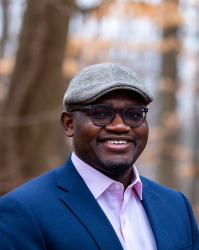


IAP is pleased to invite you to its next webinar, titled Removing Barriers that hinder Global Scientific Exchange and Collaboration. You can register here. The webinar will feature presentations by international experts. Read their biographies now:
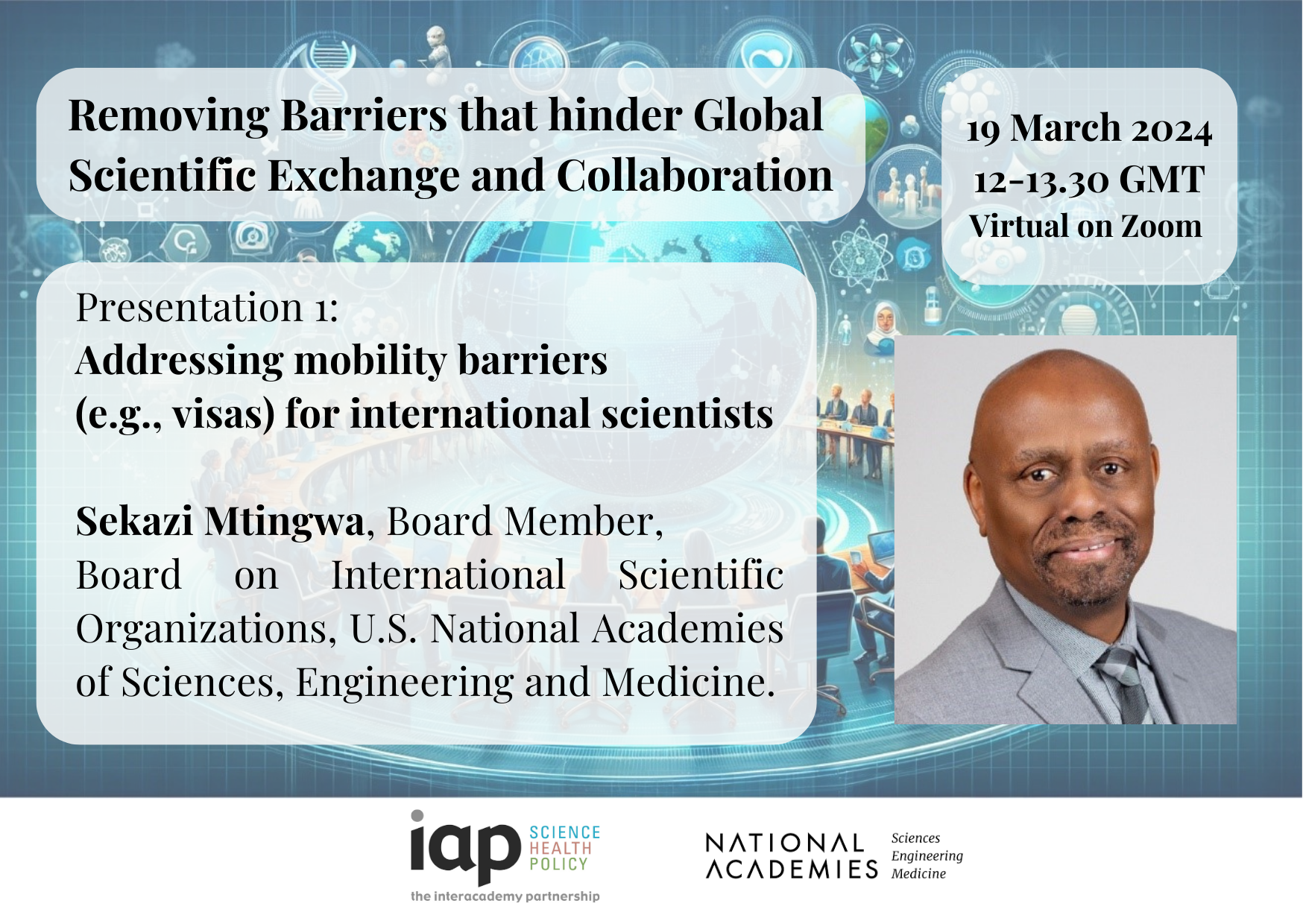
Sekazi Mtingwa is an Administrative Judge with the U.S. Nuclear Regulatory Commission and Principal Partner of TriSEED Consultants, LLC, in the United States. He is also a Board Member, Board on International Scientific Organizations, US National Academies of Sciences, Engineering and Medicine. He played an important role in the design and construction of accelerator systems at Fermilab used to discover the top quark. With James Bjorken, he developed the theory of intrabeam scattering, which has played a critical role in the development of intense particle accelerators, including synchrotron light sources. He co-founded approximately 25 domestic and international organizations and programs, including the African Physical Society, African Light Source Foundation, African Laser Centre, Mwalimu Julius K. Nyerere University of Agriculture and Technology in Tanzania, and LAAAMP, which enhances synchrotron light source and crystallographic sciences in developing countries. He recently served as Chair of the IUPAP C13 Commission on Physics for Development. He is recipient of the American Association for the Advancement of Science’s 2023 Philip Hauge Abelson Prize for his many contributions to scientific research and policy, the inaugural International Science Council’s 2021 Policy-for-Science Award, the American Physical Society’s 2017 Robert R. Wilson Prize for Outstanding Achievement in the Physics of Particle Accelerators, the 2017 U.S. Presidential Award for Excellence in Science, Mathematics, and Engineering Mentoring, and the American Nuclear Society’s 2015 Distinguished Service Award for his pivotal role in rejuvenating university nuclear science and engineering programs in the United States. Most recently, Mtingwa has been promoting the establishment of synchrotron light source facilities in Africa, the Greater Caribbean, and Central Asia.
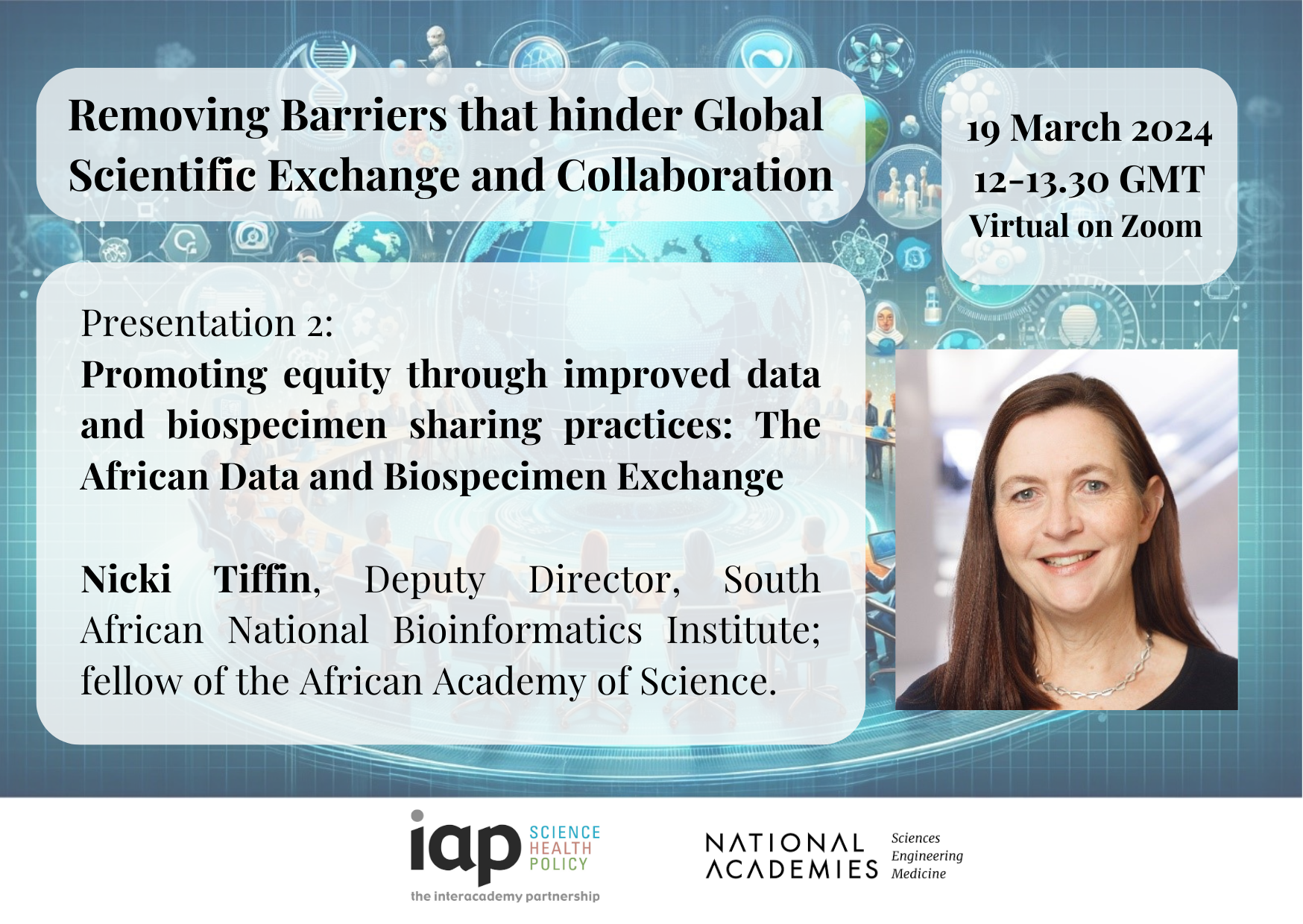
Nicki Tiffin is Deputy Director, South African National Bioinformatics Institute (SANBI). She joined SANBI in November 2021, bringing her expertise in working with health data and the bioinformatics of human disease. She has a Ph D in molecular genomics (University of London, 2000) and a Masters in Public Health-Epidemiology (University of Cape Town, 2017). Her work includes the integration and analysis of routine health data, epidemiological, clinical and genomic data, as well as the ethics and governance of working with health data in research. She is a fellow of the African Academy of Sciences and in 2021 was awarded a Calestous Juma Science Leadership Fellowship by the Bill & Melinda Gates Foundation.
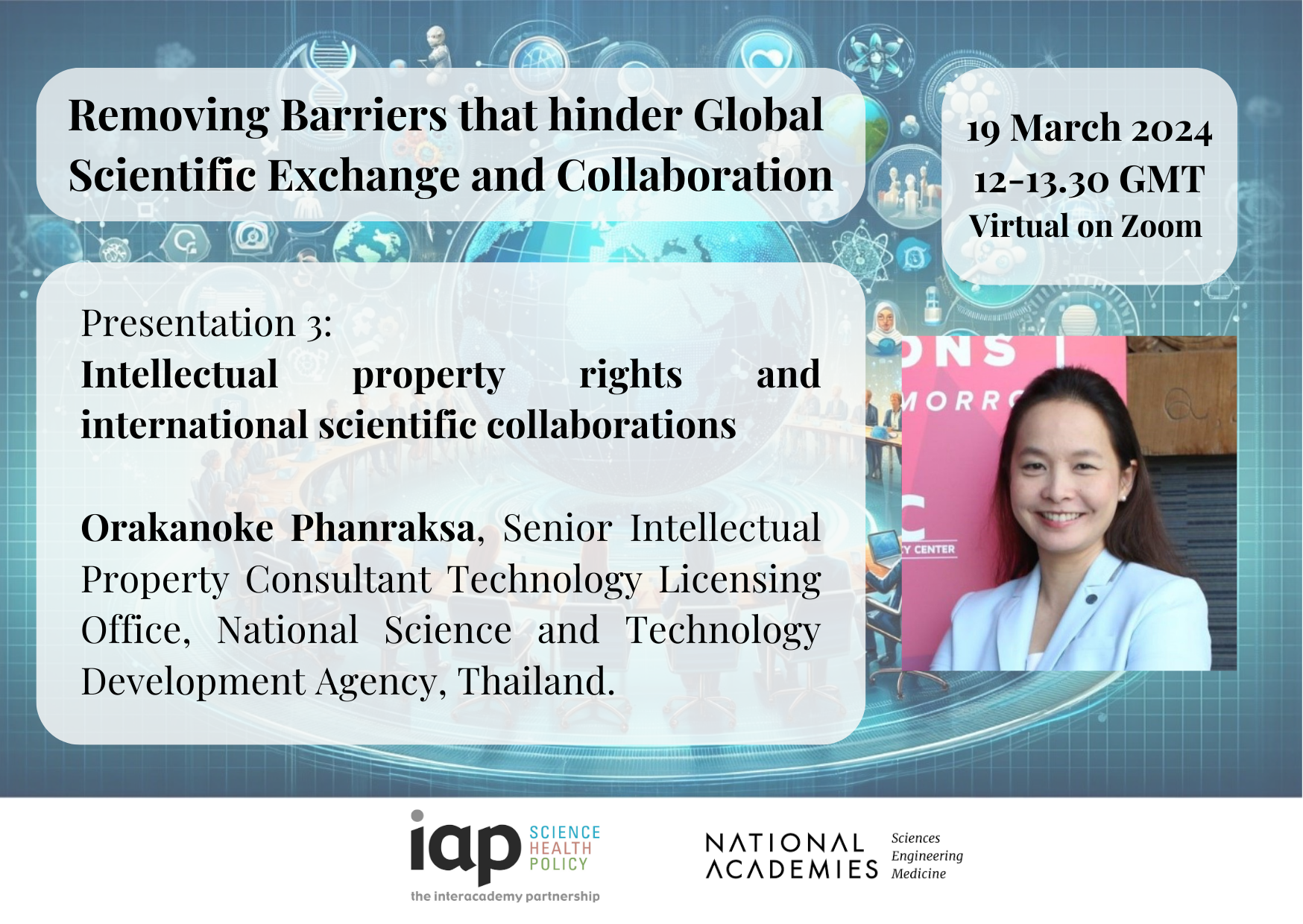
Orakanoke Phanraksa is a policy specialist in the field of intellectual property laws at Technology Licensing Office, at the National Science and Technology Development Agency (NSTDA), Thailand. Currently, she has been partially seconded to serve Thailand Science Research and Innovation (TSRI) to lead the international affairs division. She has been playing a key role to form a policy framework to promote and strengthen technology licensing offices and IP professionals in the academic and research institutions in Thailand. In 2019, she was the first to be awarded the Global IP Champion Award from the Global Innovation Policy Center, US Chamber of Commerce. This award was given to five individuals in the field of intellectual property who are leading efforts to bring about positive change in their communities and around the world. In 2023, she was selected as one of the five regional IP Policy experts by the WIPO to develop the IP Policy Model for Universities and Research institutions in ASEAN. Apart from her professional experience in the IP regime, she was one of the past Co-Chairs of the Global Young Academy (2015/2016), a non-profit organization with 200 top young scientists from all disciplines from around the world. She was the co-founder and Co-Chair of the ASEAN Young Scientists Network where she enjoys sharing her IP experiences to the community of young scientists in ASEAN. In 2022, she was selected and appointed as the International Science Council Fellow. She experienced in policy development by serving the Minister of Higher Education, Science, Research, and Innovation (MHESI) Thailand from 2020-2022.
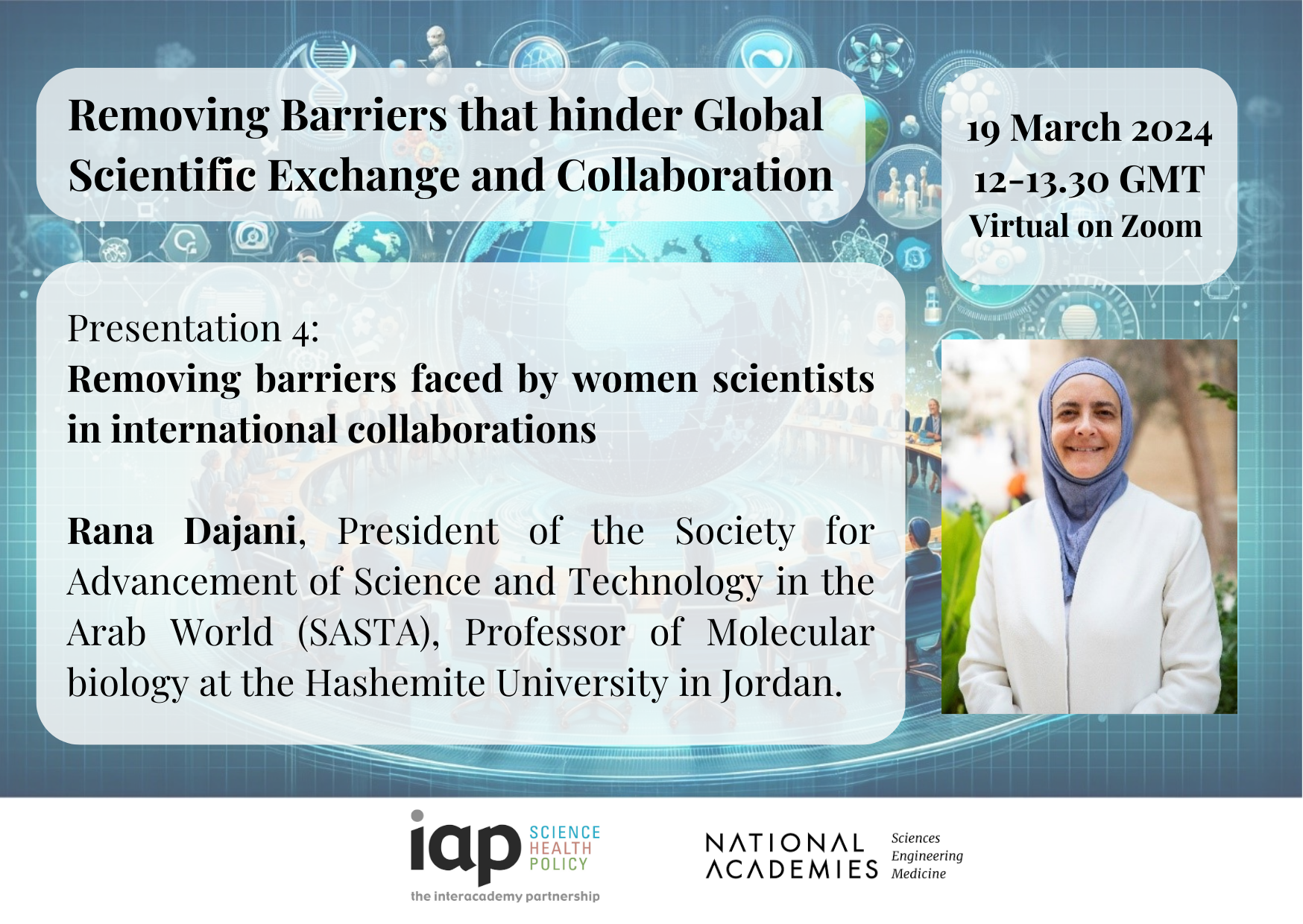
Rana Dajani is currently a Robert Bosch Fellow in Germany, a professor of molecular biology at the Hashemite University in Jordan. Her area of expertise is epigenetics and biomarkers of trauma among refugees. Through her leadership, she has introduced national and regional stem cell laws and presided over numerous scientific boards and United Nations councils, most recently as the President of the Society for the Advancement of Science and Technology in the Arab World. Visiting professor at Harvard, Yale, MIT and Cambridge. A tireless supporter of building indigenous research capabilities in the developing world and creating a mentoring program to support women scholars in STEM that was recognized by the National Academy of Sciences. Rana is a social entrepreneur and global thought leader. She is the founder of We Love Reading, a grassroots initiative to create changemakers in underserved communities by fostering a lifelong love of reading. A recipient of the UNESCO International Literacy Prize, We Love Reading has established more than 8,000 locally run libraries in over 60 countries. Rana has also been recognized as a Fulbright, Eisenhower, Ashoka and Yale Morse Fellow. On the list of the 100 most influential Arab Women and receiving the Jacobs social entrepreneur award, Nansen UNHCR refugee award, and the Schwab Social Entrepreneur Award. Her 2018 book Five Scarves: Doing the Impossible — If We Can Reverse Cell Fate, Why Can’t We Redefine Success? challenged global policy makers to address ongoing inequities in education and employment, while also putting forward a new paradigm for measuring success in an evolving world.
Date and Time: Tuesday, 19 March 2024, from 12:00 noon - 13:30 PM UTC/GMT; 8:00 - 9:30 AM EST. Please use this time converter to adjust to your local time zone or location.
Platform: Virtual on Zoom.
Duration: 90 minutes.
You can download the PDF version of the agenda and biographies of speakers here.
You can register to the webinar here.
